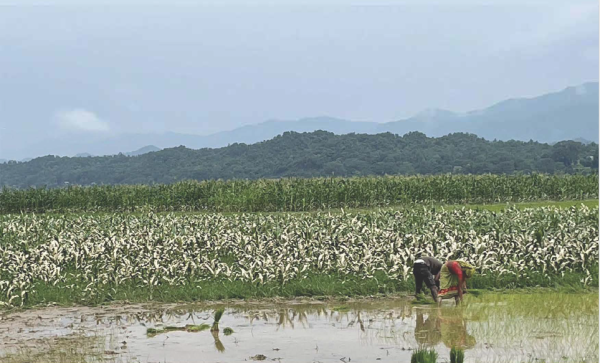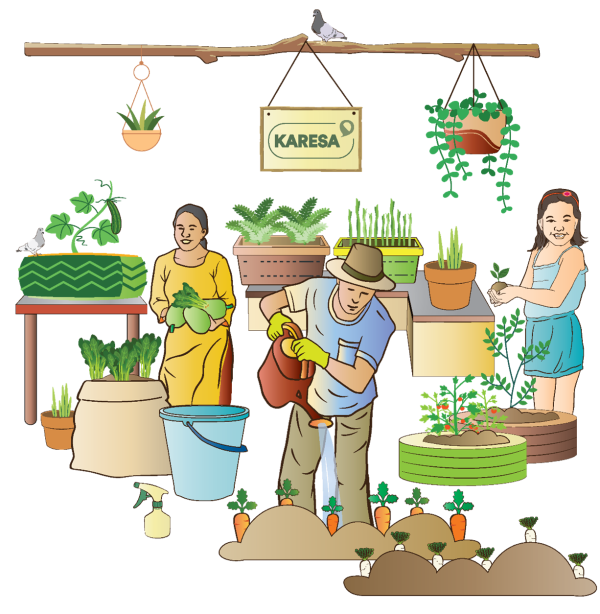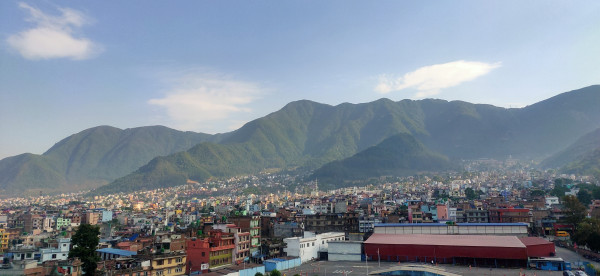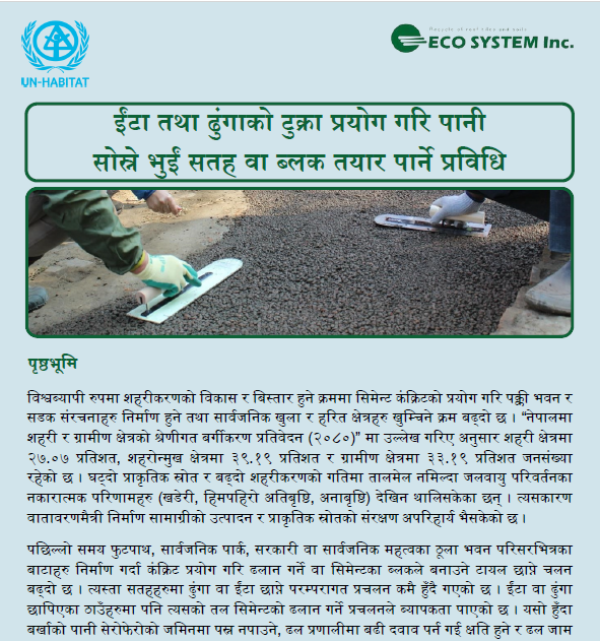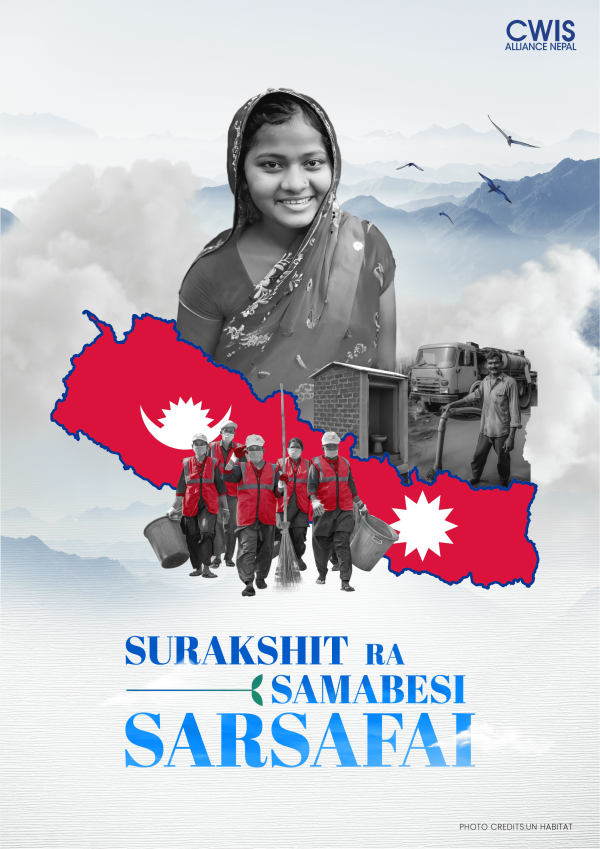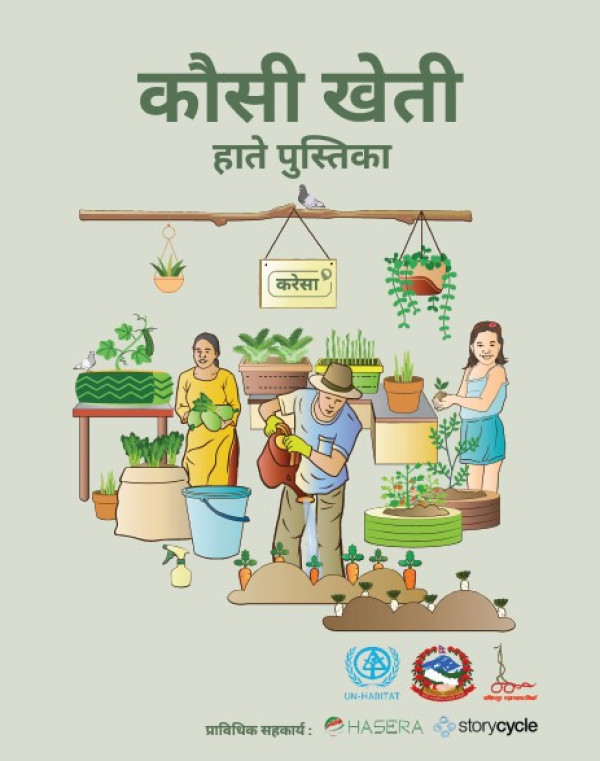Training Workshop on Community-led Development Process and Strategy Planning for Bungamati Area Reconstruction and Development Committee
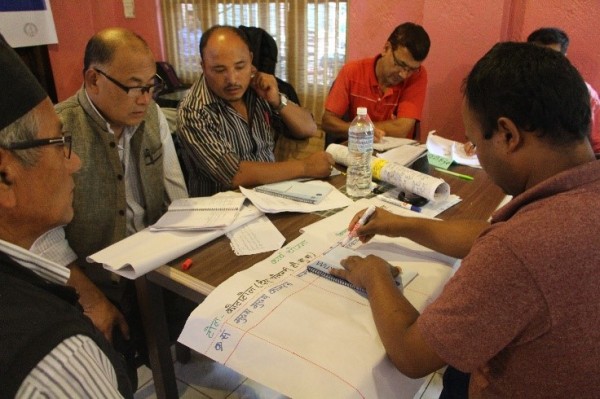
30 August 2018, Lalitpur 2015 April earthquake caused unprecedented damage to the lives and properties of thousands of people in Nepal. In the Kathmandu Valley, the damage was extensive in the old settlements. Not only did the people lose their houses, many lost their lives and their means of livelihood as well. Bungamati was no different. Nearly 800 houses were damaged; the lost entrepreneurs and traditional craftsmanship saw a major setback during the time. With an aim to revive this, once a very vibrant old town, EU and UN Habitat supported project “Sustainable Tourism and Green Growth for the Heritage Settlements of Kathmandu Valley” was initiated for this purpose. The project aims to build the capacity of the local community to lead the process. As part of the project, the cluster committees were formed at the community level. The municipality has demarked the boundary of heritage and the community within this boundary is divided into 12 clusters. The role of these cluster committees is to unify and mobilize the fellow community members in order to, identify issues existing in their cluster, strategize various plans to address these issues, develop different development plans and initiatives to improve the condition of the community clusters. In order for the cluster committees to take up this noble initiative, their capacity needs to be built. Therefore, this training workshop was planned. The two days workshop focused in facilitating the process of developing community action plan for each community. To assist them to prepare strategy and plan for development of their cluster, Mr. Prafulla Man Singha Pradhan, senior advisor to Lalitpur Metropolitan City, UN Habitat and Lumanti was the facilitator of the workshop. The first day focused on briefing the representatives about the objectives and the activities planned under the project-Bungamati-Pilachenn-PARYA Sampada. Mr. Padam Sunder Joshi, Habitat Program Manager of UN Habitat, welcomed the participants and gave a brief about the idea behind the development of the project. Bungamati with its rich social and cultural aspects has a potential to be revitalized and developed a touristic center showcasing the history and culture of the Newari Society. The three implementing partners, CUID, SABAH and Lumanti presented the scope of their work in project, which was followed by interaction with the participants. The second session of the first day concentrated on making the cluster committee understand their role in developing a planning process in their clusters so that they are able to find additional resources besides the project for the physical, cultural and social improvement of their clusters. The cluster committees were asked to identify the strong points, weak points, opportunities and challenges in clusters and ways to mitigate were also discussed. The activities on second day were more focused on preparing the action plan by each cluster committee to work out the process to address the aspects discussed on the first day. Each team prepared a very comprehensive and detailed plan of the actions they would take to implement the project they had prioritized and had also identified prospective stakeholders with whom they would partner for the implementation. Each group work was followed by presentation from the cluster team to the other cluster representatives so that they could learn from each other. The process helped the clusters team to have a clear goal as to how they want to move forward. The sheets prepared by the clusters have been finalized and will be shared with the team. The program was closed by Ms. Lajana Manandhar, Executive Director of LUMANTI. She stressed that there is a genuine need to preserve out cultural heritage and the community should take a lead on that. They should not depend fully on outside resources but build it in with their own capacity and the project and its partners were there to support them through various capacity development program. The participants also appreciated the process and have committed continue the process and share the outcome of the workshop with their fellow community members.
